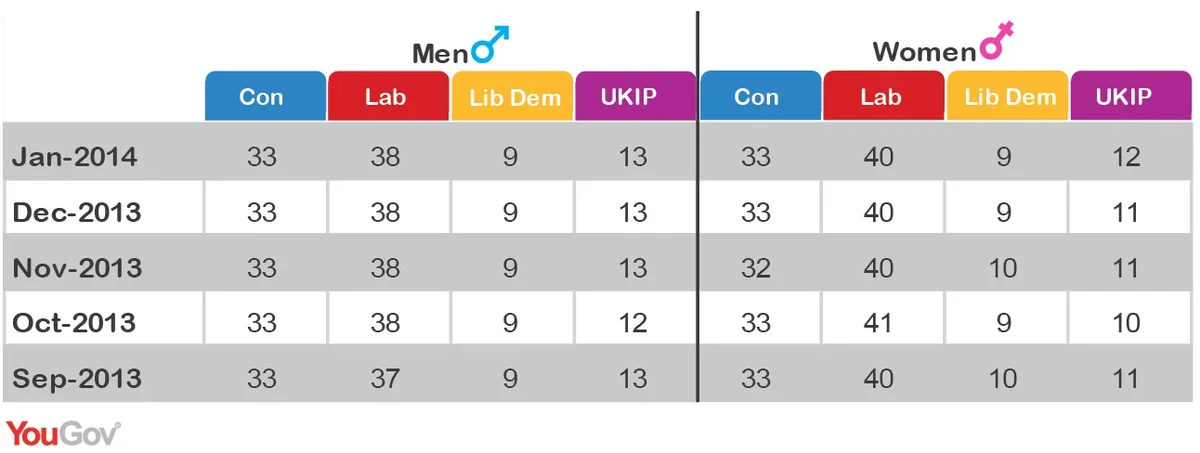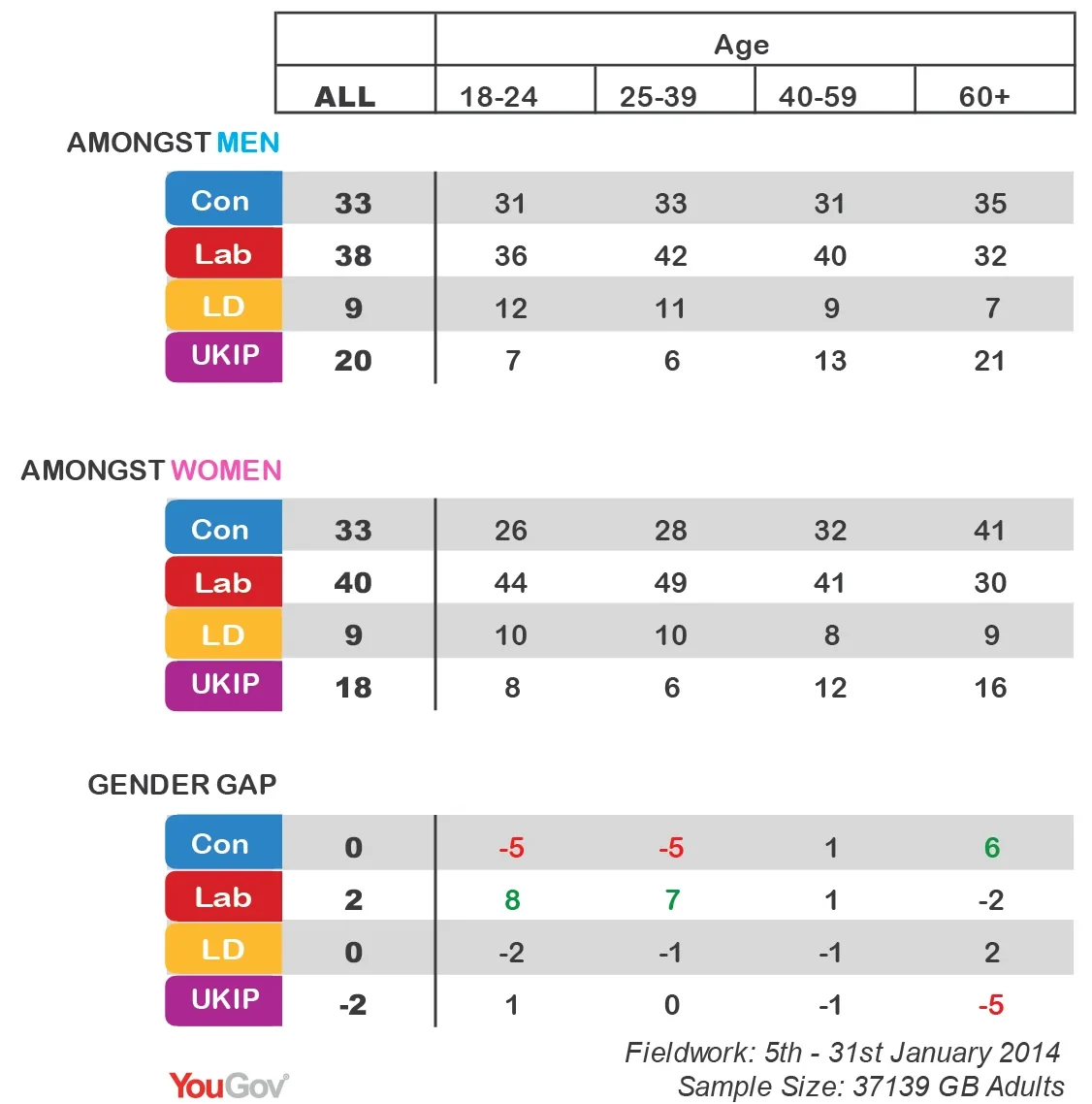Anthony Wells on why David Cameron's so-called 'women problem' isn't exactly as it seems
Many newspaper columns have been written over the past few years about the Conservative problem with women voters, or David Cameron's problem with women voters. There was another outbreak of them last week, provoked by a crafty move by Ed Miliband at Prime Minister's Question Time. Several journalists phoned me up to ask about the gender gap and why the Conservatives were doing worse amongst women. My (probably rather disappointing) reply was that I really wasn't sure that they were.
All opinion polls have a margin of error. Crossbreaks in polls (the splits by gender, age or region) have smaller sample sizes and bigger margins of error, so if you look at individual polls you'll often find voting intentions for just men or just women apparently jumping about from day to day. It isn't hard to find individual opinion polls that show the Conservatives doing worse amongst women, the question is whether they really are, or if it is just random variation.
One way to get round this is to look at averages of polls over time. Each month we aggregate up our monthly data for all our Sun and Sunday Times polls, giving us a sample of over 30,000 people each. If we look at the gender breaks for the last five months it shows that the gender divide isn't really changing and, what's more, it shows Conservative support amongst women is actually pretty much identical to their support amongst men. The Conservatives are on 33% with men, 33% with women, and apart from a one point difference in November, its been the same for five months. While Conservative support is the same, the gap is different - Labour have consistently been doing two points better amongst women than amongst men, but it seems to be at the expense of UKIP rather than at the expense of the Tories.

So, despite all the column inches, all the fuss, it is all a Labour issue and nothing to do with the Conservatives at all? Well, overall the Conservatives have the same support amongst men and women, but dig a little deeper and there are differences. When we look at the aggregated data broken out by gender AND age, there does appear to be a gender gap. Amongst under 40s the Conservatives are doing worse amongst women – their voting intention is 5 points lower amongst women under 40s than amongst men under 40, Labour's support is seven or eight points higher. However, amongst women over the age of 60 it is the other way around, the Conservatives do better amongst older women and worse amongst older men.

So while overall Conservative support amongst men and women is the same, with young people they do worse amongst women, with older people they do worse amongst men. The most likely explanation for the over 60s is the UKIP effect – UKIP support is skewed towards older men, so the Conservatives have likely lost more old men than old women. Amongst younger people the difference does seem to be between Labour and the Conservatives – either the Tories are failing to appeal to younger women... or Labour are failing to appeal to younger men.







